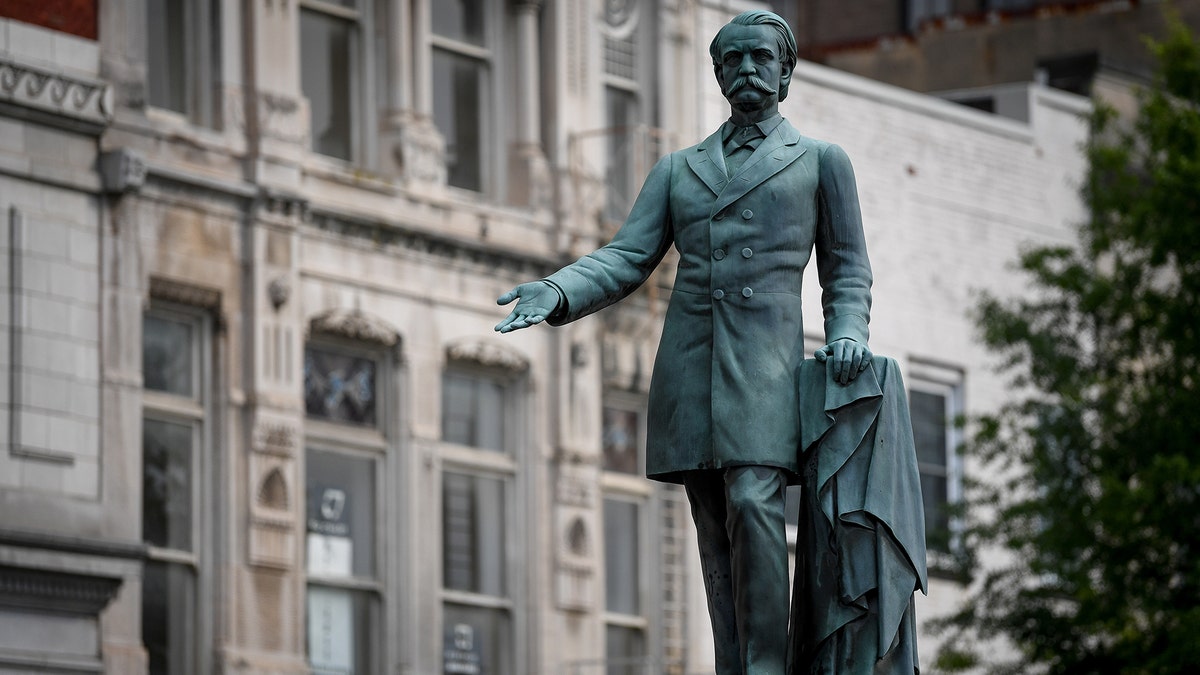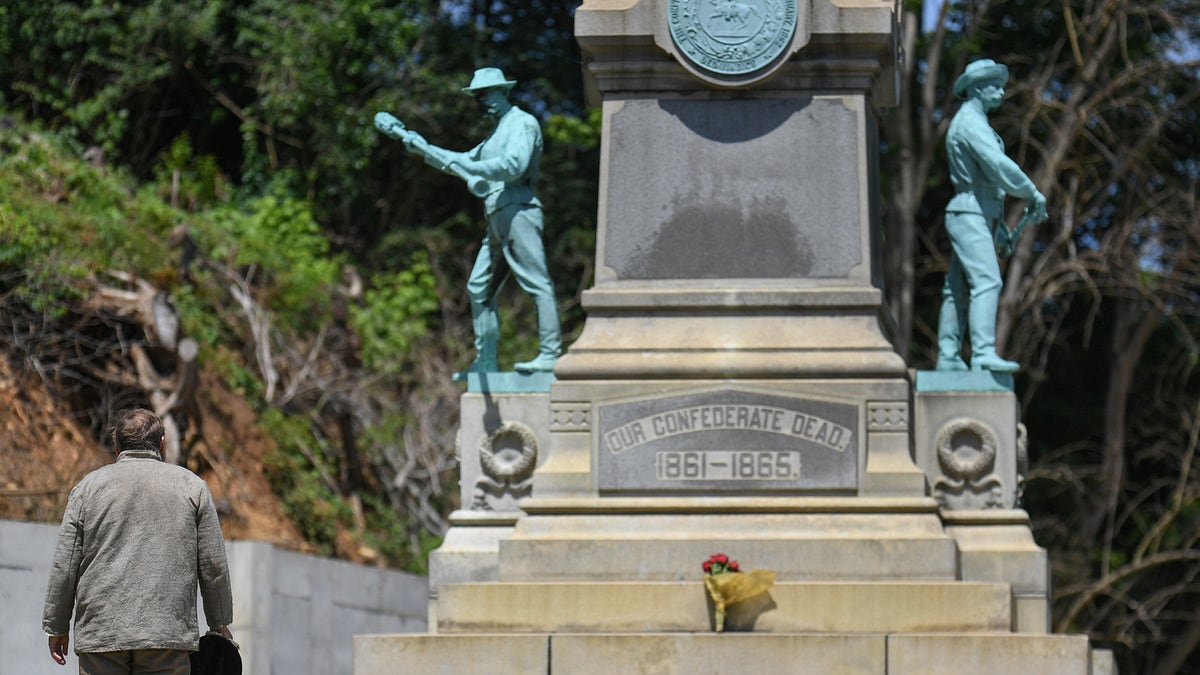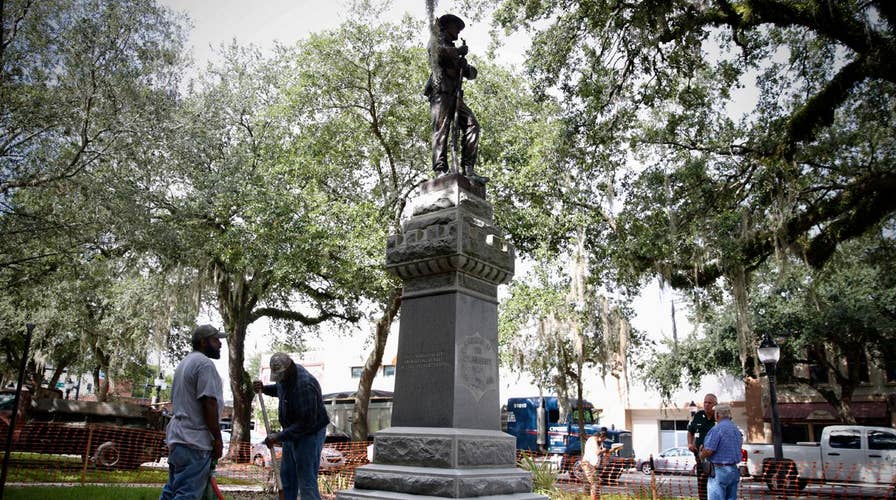The nation’s oldest historians group called for a nuanced debate regarding the removal of Confederate monuments – and for preserving the controversial symbols in some way.
The debate over what to do about Confederate statues and monuments has taken on new urgency in communities across the U.S. since the deadly rally in Charlottesville, Va., sparked by the planned removal of a statue of Robert E. Lee. The American Historical Association released a statement this week that said President Trump was correct on Aug. 16 when he tweeted: “You can’t change history, but you can learn from it.”
“Debates over removal of monuments should consider chronology and other evidence that provide context for why an individual or event has been commemorated,” the organization, which was founded in 1884, said in its statement.

A monument to former U.S. Vice President and Confederate General John Cabell Breckinridge stands outside the Old Courthouse in Lexington, Ky. (Reuters)
But the AHA didn't endorse everything Trump wrote. For instance, Trump also wrote: “Sad to see the history and culture of our great country being ripped apart” by the removal of the Civil War statues.
“To remove a monument, or to change the name of a school or street, is not to erase history, but rather to alter or call attention to a previous interpretation of history,” the historians said. “A monument is not history itself; a monument commemorates an aspect of history, representing a moment in the past when a public or private decision defined who would be honored in a community’s public spaces.”
WHICH CONFEDERATE MONUMENTS HAVE BEEN REMOVED? A RUNNING LIST
About 1,500 symbols of the Confederacy exist in the U.S., according to a list compiled by the Southern Poverty Law Center, and that includes schools and streets named after Confederate generals as well as actual statues, plaques and monuments.
“[The monuments] should be preserved, just like any other historical document, whether in a museum or some other appropriate venue,” they write.

A man stands in the uniform of a Confederate soldier in front of a monument in Brandenburg, Ky. (Reuters)
Current debates underway in cities across the country tend to frame the issue as “history” versus “racism” -- but the AHA statement says more context will ultimately lead to a more informed debate.
While noting the monuments were erected to commemorate the Confederacy, the AHA statement says “this enterprise was part and parcel of the initiation of legally mandated segregation and widespread disenfranchisement across the South. Memorials to the Confederacy were intended, in part, to obscure the terrorism required to overthrow Reconstruction, and to intimidate African-Americans politically and isolate them.”
At a press conference and on Twitter in August, Trump suggested removing Confederate monuments would put the country on a slippery slope toward taking down statues of George Washington and Abraham Lincoln. The historians group said that’s a “flawed analogy.”
“There is no logical equivalence between the builders and protectors of a nation -- however imperfect -- and the men who sought to sunder that nation in the name of slavery,” the AHA said, noting that even though Washington owed slaves, the Washington Monument exists because of his contributions to creating America.










































